Armed With Graduate-Level Research, This Nurse Took Her Fight for Vets to the White House
- News & Events
- News
- Armed With Graduate-Level Research, This Nurse Took Her Fight for Vets to the White House
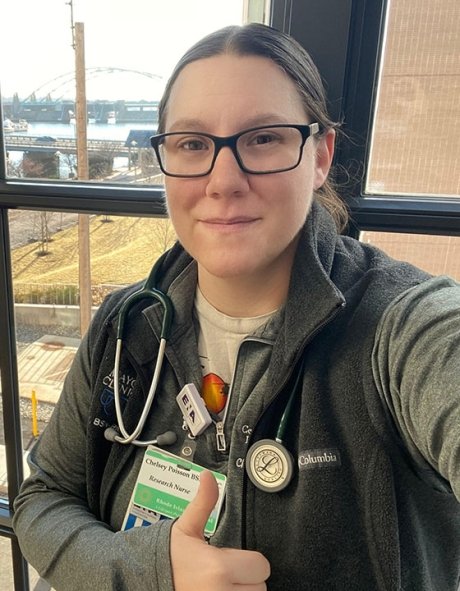
”We aren’t JUST nurses. We are NURSES. We have the capability to change the world.”
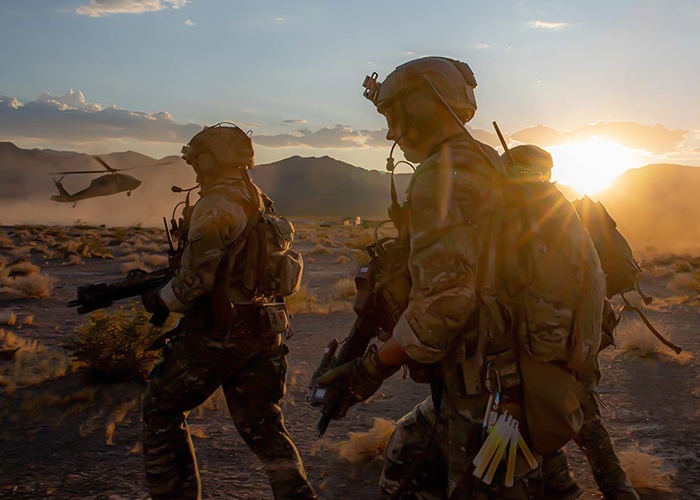
Chelsey (Poisson) Simoni ’18, M.S.N. ’22 has met with congressmen, spoken before a senate committee and met with President Biden and the First Lady at the White House. You might say she’s a soldier on a mission.
For the past five years, this public health nurse and former member of the R.I. Army National Guard has been fighting to expose the long-term effects of toxic burn pits on U.S. military bases during the Iraq and Afghanistan wars.
Burn pits are massive holes used for the disposal of waste, releasing known carcinogens into the air. These burn pits, Simoni says, have caused otherwise healthy Iraq War veterans to return from deployment with cancer, leukemia, respiratory illnesses and other chronic conditions. (See “Burn Pits: The Agent Orange of the Iraqi War”)
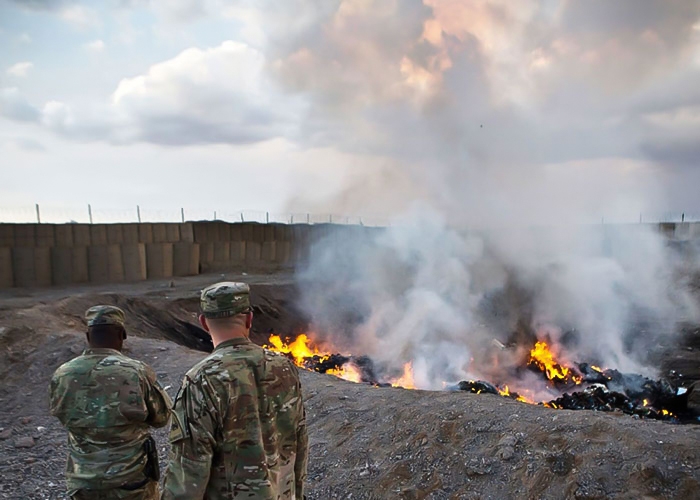
In 2017, as part of her undergraduate nursing honors project, she began an in-depth, evidence-based literature review on the health effects of burn pits in Iraq. In 2018 she released a burn pit survey to the public, with the assistance of RIC Associate Professor of Nursing Sylvia Ross and Assistant Professor of Nursing/Lt. Col. Sheri Boucher, a former U.S. Air Force flight nurse who had been stationed in Afghanistan. Within two weeks, 100 Iraq veterans had responded.
“My hypothesis was confirmed,” she says. “Iraq War veterans exhibited a decrease in overall physical fitness test scores and a significant increase in medical symptoms post-deployment.”
In 2020, while earning her master’s degree in public health nursing at RIC, Simoni published her research in a peer-reviewed journal, together with Ross and Boucher. (See “M.S.N. Student Publishes Study on Toxic Exposure in Iraq Vets.”) Armed with evidence-based data, she now pushed for legislation on Capitol Hill.
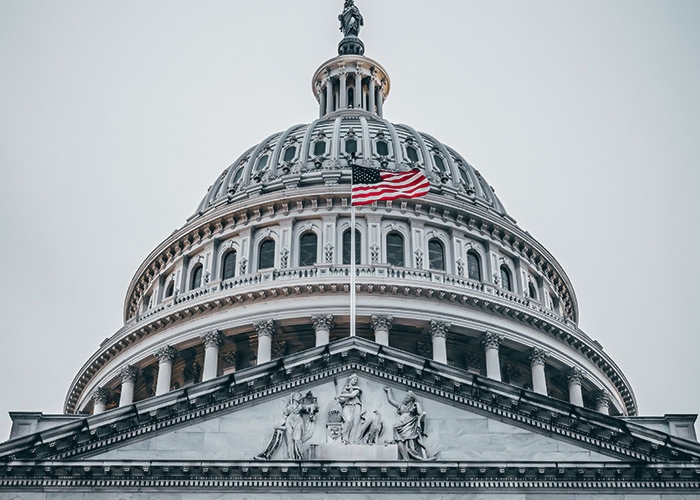
Legislation would ensure that service members are informed of possible long-term health risks related to burn pit exposure. Legislation would ensure a more comprehensive medical screening process for Iraq War veterans post-deployment. Legislation would ensure that documentation of exposure becomes a permanent part of every service member’s medical record. It would also help codify the VA’s response to veterans returning with conditions linked to exposure. Most importantly, legislation would arrest future exposure by requiring safer methods of incineration.
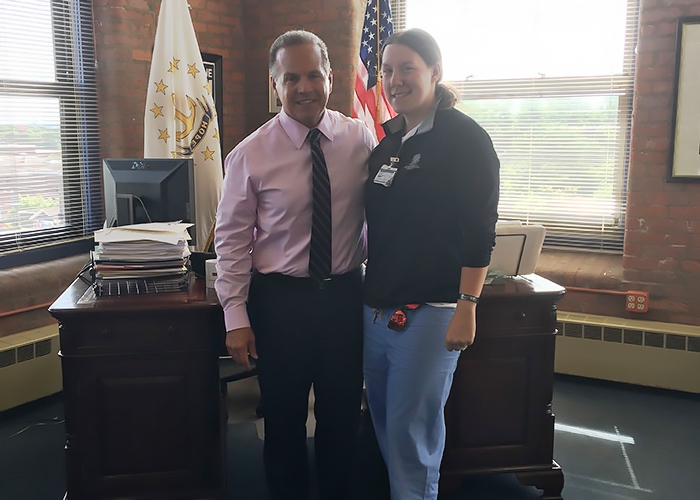
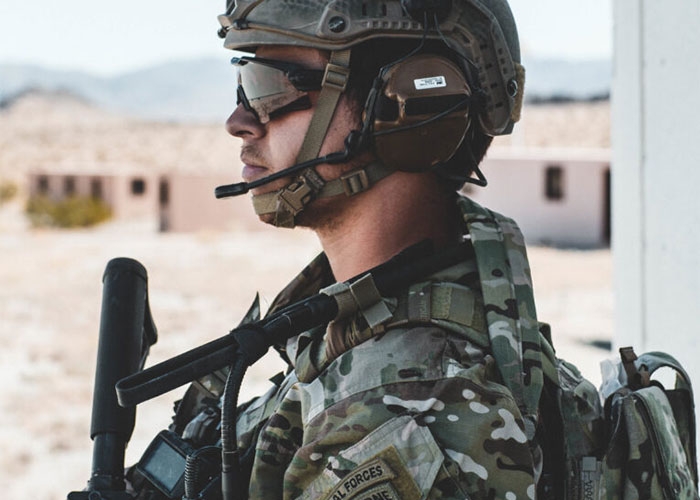
Along with meeting with various congress members to enlist their support, Simoni met with President Biden, both in 2022 and 2023, to discuss cancer prevention and early cancer identification from a public health perspective.
“In retrospect, the impact of having an M.S.N. degree has been more profound than I expected,” Simoni says. “My voice and perspective, from an educational standpoint, have been critical in various legislative bills, including the nation’s largest veteran healthcare expansion bill in history.”
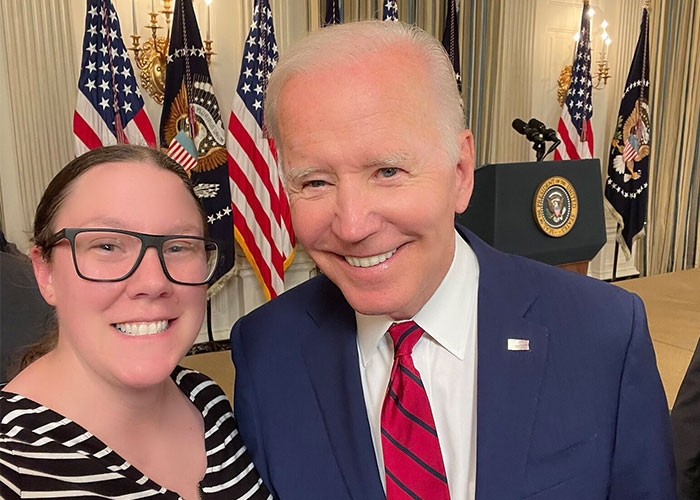

Recently, in June 2023 the U.S. Senate Veterans Affairs Committee invited Simoni to testify on issues pertaining to mental health, public health, substance use and health equity. (See “Why are Veterans Dying from Preventable Overdoses?”)
Simoni is also co-founder and executive director of the HunterSeven Foundation, a nonprofit organization designed to continue the research on military-specific toxic exposures, provide post-9/11 veterans with information on the long- and short-term impact of these exposures and to provide them with medical and nonmedical support to assist with their immediate needs.
“In the past five years, HunterSeven has grown 10-fold,” Simoni says, “providing over $1 million in support to post-9/11 military veterans battling illnesses and cancers as well as providing academic scholarships to undergraduate RIC nursing students.”
Today, Simoni conducts clinical nurse research in toxicology, epidemiology and infectious diseases at RIC’s Zvart Onanian School of Nursing and works as a clinical nurse instructor in the nursing program. She is also employed part-time in the emergency room of Norwood Hospital in Massachusetts.
Asked if she would recommend RIC’s graduate nursing program, she replies, “Absolutely. But not necessarily for the curriculum itself, because most schools follow similar class structures and content. The reason why I recommend RIC’s School of Nursing is because it has some of the most dedicated, passionate and driven faculty and staff anywhere. When I say that they changed my life, they truly did.
“I remember having Dr. Lynn Blanchette in the senior year of my undergraduate program. I made the comment, ‘We can't change that [societal ill]. We’re just nurses.’ She looked at me, and full of emotion, said: ‘We aren’t JUST nurses. We are NURSES. We have the capability to change the world.’
“That was nearly five years ago. Both Dr. Blanchette and Dr. Joanne Costello have had a profoundly positive impact on my college course of action and the impact I’ve been able to have locally, nationally and worldwide, from policy and law to clinical practice guidelines and health equity implementations. At RIC, those who teach are truly leaders.” Simoni has become one in her own right.
